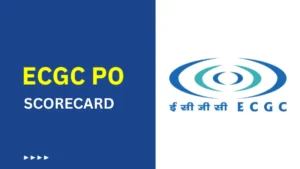Dear Readers,
The reasoning is a game of wits and presence of mind! Yes, it is true and it might seem as the greatest of the challenge after English Section’s surprises but yet this one can easily be dealt with. You just need correct practice and hardwire your brain to quickly make decisions about what to attempt and what to leave. And for same we are providing you questions of Reasoning Question and Answers. Solve these to Practice latest pattern reasoning question for bank exams.
Directions (1-5): Study the following information carefully and answer the questions given below:
Seven persons A, B, C, D, E, F and G belong to seven different states, viz Uttarakhand, Bihar, Jharkhand, Rajasthan, Punjab, Kerala and Gujarat but not necessarily in the same order. Each of them likes a different dish, viz Dosa, Burger, Rajma, Pizza, Sandwich, Samosa and Dhokla but not necessarily in the same order. B likes neither Dosa nor Dhokla. D belongs to Jharkhand. C belongs to Bihar and likes Pizza. E and F do not hail from Rajasthan. The one who hails from Rajasthan likes Burger. Neither Sandwich nor Dosa is liked by D. B hails from Punjab. The one who likes Dhokla is either from Gujarat or from Punjab. F does not like Dosa or Sandwich. A likes Rajma. G is not from Kerala.
Q1. Who among the following likes Dhokla?
(a) E
(b) F
(c) G
(d) Can’t be determined
(e) None of these
Q2. If the person who likes Dosa is from Kerala, then the person who likes Rajma is from which of the following states?
(a) Rajasthan
(b) Jharkhand
(c) Uttarakhand
(d) Can’t be determined
(e) None of these
Q3. Which of the following combinations is false?
(a) B – Punjab – Sandwich
(b) F – Gujarat – Dhokla
(c) G – Rajasthan – Burger
(d) All are false
(e) All are true
Q4. B likes which of the following dish?
(a) Rajma
(b) Dhokla
(c) Sandwich
(d) Burger
(e) None of these
Q5. Who among the following belongs to Rajasthan?
(a) E
(b) F
(c) G
(d) A
(e) B
Q6. A and B are sister. A is the mother of D. B has a daughter C who is married to F. G is the husband of A. How is B related to F?
(a) Sister-in-law
(b) Mother-in-law
(c) Mother
(d) Brother
(e) None of these
Q7. A person walks 20 m towards east direction. Then he takes his right and walk 10 m. Then he turns left and walks 10 m and then turning his right he walk 20 m. Then he turns right again and walks 60 m. He is in which direction from his starting point?
(a) North
(b) North-west
(c) East
(d) North-east
(e) South-west
Q8. In a certain code language ‘money makes profit’ is written as ‘ve jo qi’, ‘makes is expected’ is written as ‘qi lo mn’, and ‘profit expected number’ is written as ‘lo ve pr’ ,then what is code for “money” ?
(a) lo
(b)pr
(c) qi
(d) ve
(e) jo
Directions (9-10): In the given questions, assuming the given statements to be true, find which of the given four conclusions numbered I, II, III and IV is/are definitely true and give your answer accordingly.
Q9. Statements: P > L ≤ N ≥ C, D ≤ R = H < P
Conclusions:
I. D < P
II. H > L
III. C > L
IV. N ≥ R
(a) Only I and II are true
(b) Only I is true
(c) Only I and III are true
(d) Only II and IV are true
(e) None of these
Q10. Statements: M ≤ A < V = S, T > Q, N > Q, N = M
Conclusions:
I. V > N
II. A ≥ N
III. S > Q
IV. T > M
(a) Only I, II and III are true
(b) Only II, III and IV are true
(c) Only II and IV are true
(d) Only I is true
(e) None of these
Directions (11-15): Study the set of numbers given below and answer the questions which follow.
427 581 839 275 589
Q11. If in each number, the first and the second digits are interchanged, which will be the second lowest number?
(a) 427
(b) 581
(c) 839
(d) 275
(e) 589
Q12. If in each number, first and the last digits are interchanged, which of the following will be the third highest number?
(a) 427
(b) 581
(c) 839
(d) 275
(e) 589
Q13. If in each number, the second and the third digits are interchanged, which will be the second highest number?
(a) 427
(b) 581
(c) 839
(d) 275
(e) 589
Q14. If two is subtracted from the first digit of each of the numbers and then the first and the third digits are interchanged, which of the following will be the lowest?
(a) 427
(b) 581
(c) 839
(d) 275
(e) 589
Q15. If in each number, all the three digits are arranged in ascending order, which of the following will be the third lowest number?
(a) 427
(b) 581
(c) 839
(d) 275
(e) 589





 GA Capsule for SBI Clerk Mains 2025, Dow...
GA Capsule for SBI Clerk Mains 2025, Dow...
 The Hindu Review October 2022: Download ...
The Hindu Review October 2022: Download ...
 ECGC PO Scorecard 2025 Out, Check Marks
ECGC PO Scorecard 2025 Out, Check Marks




